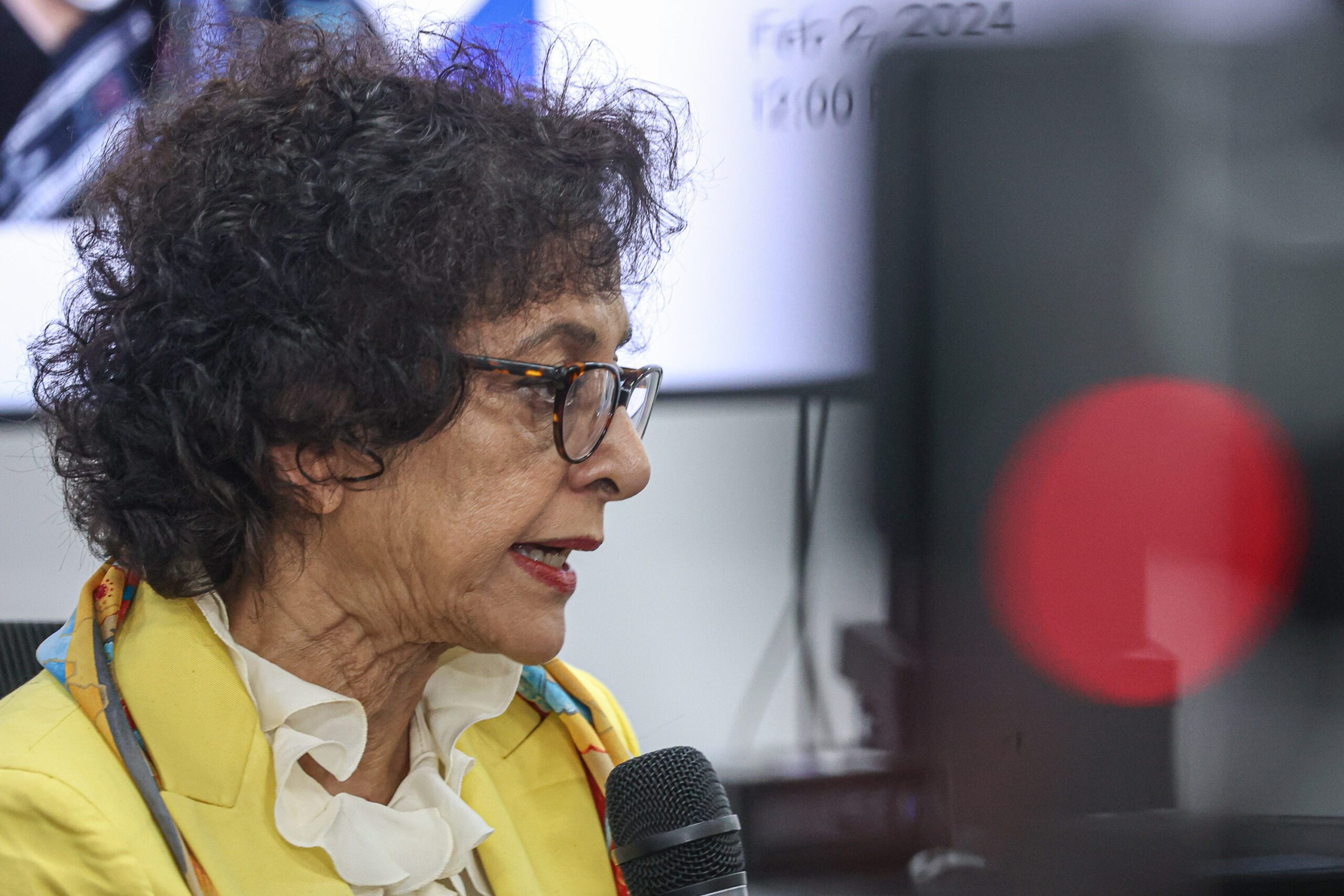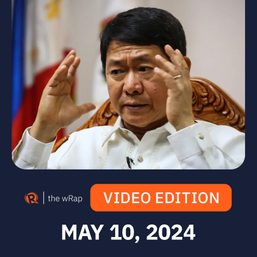SUMMARY
This is AI generated summarization, which may have errors. For context, always refer to the full article.

MANILA, Philippines – The Supreme Court (SC) allowed a United Nations special rapporteur to submit her opinion in the cyber libel case appeal of Nobel Peace Prize laureate and Rappler CEO Maria Ressa.
In a resolution dated January 24, 2024, the SC’s First Division granted the motion of Irene Khan, UN Special Rapporteur on the Promotion and Protection of the Right to Freedom of Opinion and of Expression, to appear as amicus curiae (friend of the court) or chosen expert in the case. The High Court also admitted and noted Khan’s amicus brief for the case.
Khan’s brief will provide the SC “the international and regional legal standards as they apply to freedom of expression, especially regarding its application to the law of defamation.” An amicus brief is submitted to a court to help it decide on a specific case.
Aside from Khan, the High Court also allowed the International Bar Association’s Human Rights Institute to file their opinion in the case.
In June 2023, Khan asked the SC to allow her to sit as an expert in the pending libel case of Ressa and former Rappler researcher Reynaldo Santos Jr. The UN special rapporteur, in explaining the filing of her motion, earlier explained that she was “concerned” that the law in the country fails to adequately protect the right to freedom of expression under article 19 of the International Covenant on Civil and Political Rights. The Philippines is a state party in the said covenant.
Khan noted that the cybercrime law in the Philippines “raises serious concerns that it limits the ability of journalists to expose, document and address issues of important public interest, thereby violating the right to receive and impart information.”
Almost four years ago, in 2020, a Manila court convicted Ressa and Santos of cyber libel over the case filed by businessman Wilfredo Keng. In 2022, the Court of Appeals (CA) affirmed the convictions of Ressa and Santos, and imposed a longer prison sentence.
The CA later junked the motion for reconsideration filed by Ressa in October 2022, which pushed the camp of Ressa and Santos to elevate the case to the High Court.
Why this matters
Amici curiae are usually invited by the court in constitutional cases to weigh in and give their insights. In Khan and the IBA’s case, they volunteered to provide their opinions in the appeal.
When Ressa and Santos’ case was still in the lower court, then-special rapporteur on the Right to Freedom of Opinion and Expression David Kaye also submitted an amicus brief to the court. Kaye said the brief sought to “provide the Honorable Court with a greater understanding of the role of journalists and the special protection all Member States must accord.”
Khan is an important figure in the rights of expression and of the press. As a rapporteur appointed by the UN Human Rights Council, she had been tasked to gather relevant information in relation to alleged violations of right to freedom of opinion and expression. She can also provide recommendations and suggestions to better promote and protect the right to freedom of expression.
Earlier this year, Khan visited the Philippines and later released her observations and recommendations. She suggested the abolition of the National Task Force to End Local Communist Armed Conflict, and also warned that the state of free speech will affect the Philippines’ standing in the United Nations.
Khan added that efforts of the Presidential Task Force on Media Security, government’s task force on media security, were lacking. – Rappler.com
Add a comment
How does this make you feel?

















![[Just Saying] Ted Failon, press freedom, and the Supreme Court](https://www.rappler.com/tachyon/2024/07/20240709-ted-failon-press-freedom-supreme-court.jpg?resize=257%2C257&crop=296px%2C0px%2C720px%2C720px)








There are no comments yet. Add your comment to start the conversation.